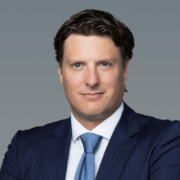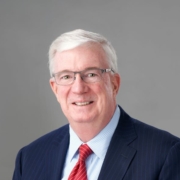Is Your Firm Receiving Optimal Value From Your Outsourced Trading Provider?
Outsourced trading firms capitalize on demand for an alternative solution to in-house trading desks. What began as a niche business is now a more crowded field attracting a growing number of players with various operating models, fueled by the asset management industry ’s constant quest to create efficiencies. In such an environment – as in any competitive service industry – each outsourced trading provider ’s value proposition becomes increasingly critical. As asset managers re-examine their business models and investment strategies in this complex environment, they do well to ask the key question: What level of service and firm structure will deliver optimal value for our firm and investors?
In outsourced trading, a provider ’s chosen operating structure heavily impacts its value proposition. Here we look at two different outsourced trading models and explore their respective value propositions. We close by sharing our views on the future of outsourced trading.
Agency broker model: an asset manager’s favorite sales-trading desk
The agency broker ’s outsourced trading offering is indistinguishable from the traditional sales-trading model of introducing broker-dealers. The agency broker maintains the relationships with the sell side and creates a hub and spoke network for its outsourced trading clients – the model’s key value proposition. Clients benefit from access to a wider broker network without the need to onboard with any sell-side brokers directly. Under this model, smaller managers are provided access to resources they may not ordinarily be entitled to, albeit likely at the expense of larger clients.
The agency broker model delivers a broad broker network for liquidity access, but other structural characteristics of this model can arguably subvert value for clients, or, at the very least, diminish the overall value proposition:
- High client-to-trader ratio – Executives at agency broker-dealers often position their firms for profitability by having traders cover many clients, typically 20 or more. It is no secret that high client-to-trader ratios detract from the quality of coverage. Managers – especially as new clients – must question where their fund will land within the coverage trader ’s priorities. When significant market events and dislocations occur, trading volumes spike and trader capacity decreases markedly, resulting in execution control issues and response delays. Traders cannot guarantee they will prioritize orders chronologically, let alone give assurance they will be in a strong position to help managers navigate the event and achieve the best possible outcomes. Lastly, high client-to-trader ratios curtail a trader ’s capacity to genuinely understand and cope with an asset manager’s requirements and fully integrate with its investment team.
- Non-directed order flow – In a traditional agency broker model, the outsourced desk can trade with a limitless number of broker dealers, alternative trading systems or exchanges. Clients considering this model should be keenly aware that the majority of sell-side firms are unable to credit them with commission attribution when the outsourced trade faces the street, resulting in a loss of valuable firepower with page 1 their PBs and preferred brokers. A top selling point for the firms offering this model is their large broker network, advertising it leads to greater liquidity access. However, SEC 606 reports filed by agency brokers reveal that, on average, greater than 50% of non-directed orders received from clients are executed through venues where it appears to be financially beneficial. In other words, the majority of non-directed order flow is either internalized, executed with clearing brokers to meet minimum revenue requirements, or, worse, routed to PFOF firms.
Authorized trader model: an unconflicted extension of an asset manager
In this model, outsourced trading providers trade solely with the asset manager ’s execution counterparties as their authorized agent (trader). This model truly embraces the ethos of what an outsourced trading firm should do: operate as an unconflicted extension of the asset manager and its investment team—a quality that represents the model’s core value proposition.
The structural characteristics of the authorized trader model further clarify its value proposition:
- Low client-to-trader ratio – Because of the intricacies involved, the authorized trader model simply does not allow for one trader to cover more than a handful of clients effectively. In this model, the outsourced provider is positioned to deliver bespoke, high touch, white glove service whereby the trader adds value as if he or she were the client ’s internal trader.
- Clients maintain direct relationships with their executing brokers – The fund name remains the focal point for resource providers. There is no intermediation of a fund’s relationship with its brokers and resource partners: All trades are booked directly into the fund’s account and all commissions and/or spreads paid to the sell-side are from the fund. For risk management and resource tracking purposes, the sell side increasingly prefers to know exactly who the end client is. Maintaining this direct relationship under the authorized trader model is the only way asset managers can be confident they will be able to access the full suite of sell-side services, including ECM access, research, block trades, and analytical tools.
Looking Ahead
At Meraki Global Advisors, we believe the future of outsourced trading is bright, particularly for providers delivering value through an authorized trader model. This belief drove us to pioneer the pure buy-side model. Our clients have witnessed firsthand that the most productive level of service is achieved when outsourced traders become deeply familiar with their portfolios and operate within a true partnership model. Furthermore, the value derived from conflict-free trade executions directly with a client ’s counterparties is significant and unmatched.
That said, we recognize asset managers are not homogenous; where one finds value, others may not. Some may not have the operational capacity to set up their own broker network and others may not require street resources, focusing instead on the low-execution costs. Perhaps a manager has just left a large established firm to launch a new fund – he or she may choose an agency broker to keep costs low while building a track record.
Other managers require comprehensive services and experienced traders to meet their complex and/or global trading needs. For these managers, a bespoke offering capable of trading every market and all asset classes will deliver the most compelling value proposition. As a new fund gains traction, the manager can now focus on establishing a distinguished identity with the street. The manager may also be focused on capturing the competitive advantages created by an expert trader entrenched in the fund’s investment processes, such as identifying and/or hedging key portfolio factors. Authorized traders with visibility into a manager ’s investment process can also monitor the alpha and beta contributions to portfolio names to establish a sense for crowding. This assessment can be an invaluable tool, specifically for sizing positions correctly around uncertain catalysts. These are just two of the many differentiated services Meraki delivers to clients on a daily basis.
As asset managers evaluate a growing field of outsourced trading providers, they would be well served by establishing a clear understanding of the value propositions on offer for optimal value.
About Meraki Global Advisors
Meraki Global Advisors was founded with a rebellious determination to deliver truly conflict-free services to asset managers. Headquartered in Park City, Utah with offices in New York and Hong Kong, Meraki provides outsourced global multi-asset trading, leverage management, and capital introduction services to the asset management industry. Meraki Global Advisors LLC is a FINRA member and SEC Registered. Meraki Global Advisors (HK) Ltd is licensed and regulated by the Securities & Futures Commission of Hong Kong.
For more information, visit the Meraki Global Advisors website and LinkedIn page
Contact:
Mary McAvey
VP of Business Development
(646) 666-7041







